The true origin stories of your 5 favorite holiday drinks
Getting you through December, one sip at a time

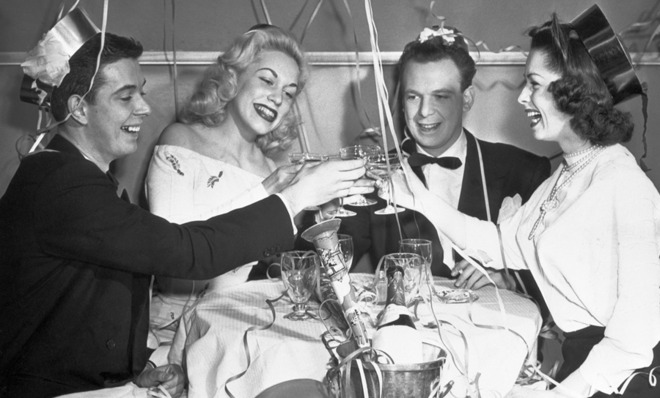
A free daily email with the biggest news stories of the day – and the best features from TheWeek.com
You are now subscribed
Your newsletter sign-up was successful
Chances are good you'll navigate the holidays with a drink in hand. (And hey, it doesn't have to be alcoholic; my fellow of-age cousins and I still duke it out every year for glasses of sparkling grape juice. That stuff is more magical than Santa).
When it comes to drinks appropriated for the holidays, though, booze does tend to star. Without further ado, the stories of how five holiday favorites came to be:
1. Mulled wine
The Week
Escape your echo chamber. Get the facts behind the news, plus analysis from multiple perspectives.

Sign up for The Week's Free Newsletters
From our morning news briefing to a weekly Good News Newsletter, get the best of The Week delivered directly to your inbox.
From our morning news briefing to a weekly Good News Newsletter, get the best of The Week delivered directly to your inbox.
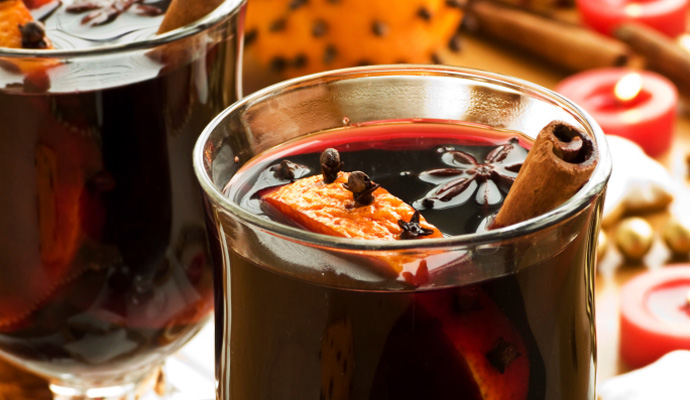
Long a quick way to warm up on a cold winter's night, mulled wine — also known as a "Smoking Bishop" — got the holiday treatment thanks to Charles Dickens, who wrote the drink into several of his stories, most notably, "A Christmas Carol."
But mulled wine existed long before Victorian England got its hands on a glass; accounts of the drink reach back to Roman antiquity, although its modern-day name came about in the 14th century, courtesy of the Old English word for "muddled." Which makes sense, considering muddled means confused, and that's where the holidays leave plenty of us.
2. Champagne
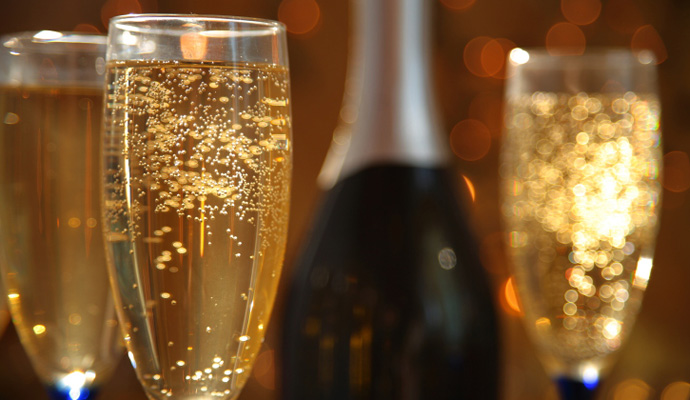
Champagne (or sparkling wine, if it isn't from France's eponymous region) shows up a lot during the holiday season, most notably as the toast du jour on New Year's Eve. Far from being created specially for December festivities, champagne was essentially born of a happy accident.
A free daily email with the biggest news stories of the day – and the best features from TheWeek.com
Dom Perignon, cellar-master extraordinaire, spent the better part of his half century on the job trying to get rid of the bubbles that resulted from the corks he pioneered. A series of pressing and blending experiments didn't get rid of the bubbles, but they did produce a beverage that, legend has it, prompted Perignon to shout, "Come quickly, I am tasting the stars!"
3. Hot buttered rum
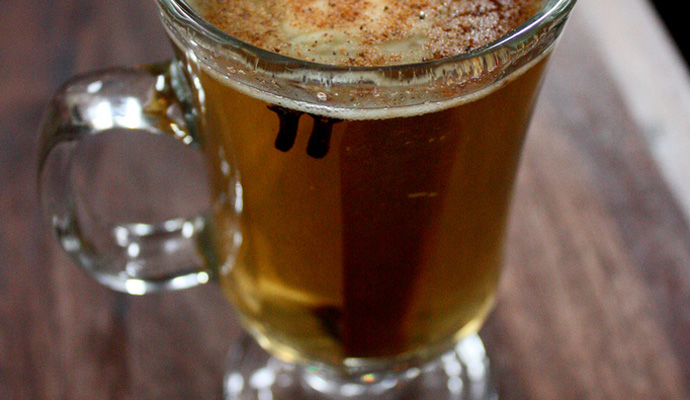
Thank the New England temperatures for this rum-based hot toddy. Colonial Americans combined the New World spirit with the Old World tradition of adding spices and beaten eggs to boiling water. The drink was such a reliable hit that many, many years later, even after Prohibition pushed the northeastern trade out, locals held on to their rum for "medicinal purposes," such as "digitipedum glaciati," meaning frozen tootsies.
Unlike nogs (don't worry; we haven't forgotten that one), toddies historically did not include a cream element.
So why the butter?
Charles Browne, author of 1939's Gun Club Drink Book, said it was necessary to smooth a gentleman's mustache. Perhaps that's why the clean-shaven Bing Crosby requests "light on the butter" when he references the drink in the holiday classic, "White Christmas." (Skip to 1:24 if you're an impatient Scrooge):
4. Eggnog
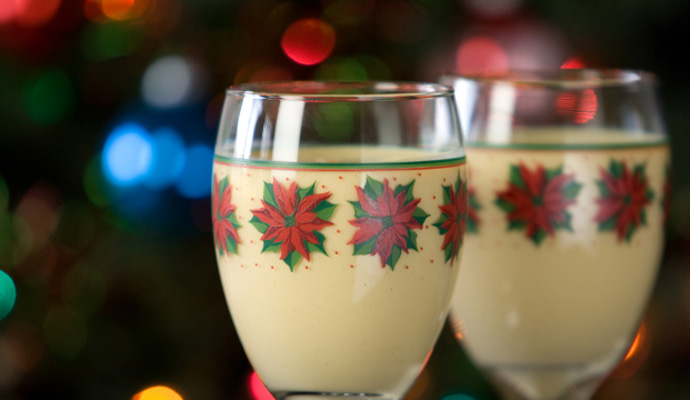
It started out as an ale-like drink, got a semi-makeover sometime in the 13th century courtesy of some thirsty monks, and leapt into the holiday traditions when Europeans crossed the pond to America in the 1700s.
Remember New England's love for rum? Yeah, they added it to this drink, too, and before long even George Washington had created a recipe.
Spinoffs popped up as colonies spread west, such as the Tom and Jerry, which enjoyed a run of popularity after its St. Louis invention.
5. Stella Artois
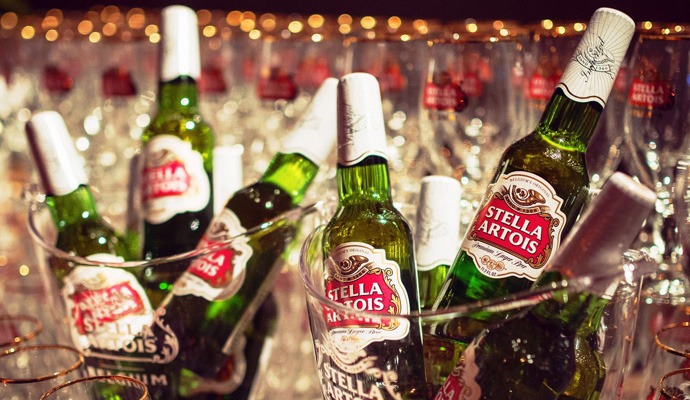
The brewery that now produces Stella opened in Leuven, Belgium, in 1366, but it was a couple more centuries before Sebastian Artois ascended to master brewer and slapped his name on all future bottles.
The "Artois" part is pretty obvious. But the brewery added "Stella" for the first time when it rolled out a special batch of holiday beer for loyal patrons. Stella means star in Latin, and today the beer still pushes a seasonal campaign tagline: "Originally crafted for the holidays."
Sarah Eberspacher is an associate editor at TheWeek.com. She has previously worked as a sports reporter at The Livingston County Daily Press & Argus and The Arizona Republic. She graduated from Northwestern University's Medill School of Journalism.
-
 Political cartoons for February 15
Political cartoons for February 15Cartoons Sunday's political cartoons include political ventriloquism, Europe in the middle, and more
-
 The broken water companies failing England and Wales
The broken water companies failing England and WalesExplainer With rising bills, deteriorating river health and a lack of investment, regulators face an uphill battle to stabilise the industry
-
 A thrilling foodie city in northern Japan
A thrilling foodie city in northern JapanThe Week Recommends The food scene here is ‘unspoilt’ and ‘fun’
